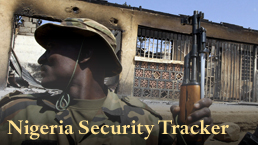 Militiaman from the Ansar Dine Islamic group sit on a vehicle in Gao in northeastern Mali 20/06/2012. (Adama Diarra/Courtesy Reuters)
Militiaman from the Ansar Dine Islamic group sit on a vehicle in Gao in northeastern Mali 20/06/2012. (Adama Diarra/Courtesy Reuters)
Share
With attention focused on radical Islamists, a dysfunctional government in Bamako, and the French military intervention, it is easy to overlook that for most Malians, to stay alive is, in itself, often a struggle. To cite a few illustrative statistics from the CIA World FactBook, the country’s birthrate and infant mortality rate are the second highest in the world. Infant mortality exceeds 10 percent. Life expectancy at birth is among the shortest in the world. More than 10 percent of the population is nomadic; in the north, that percentage is far higher. With climate change and the Sahara desert creeping ever southward, life for rural and nomadic populations in the north is getting worse; even at the best of times. Drought is now a common reality. According to the UN Office for the Coordination of Humanitarian Affairs, citing Malian statistics, about a quarter of the population faces severe food insecurity. The UN Office for the Coordination of Humanitarian Affairs has appealed to international donors for U.S.$214 million for Mali; it has received U.S.$76.3 million.
The current round of fighting makes the misery worse. Very often the popular response is flight–to anywhere else. Oxfam estimates that 30,000 so far have fled since the French began their campaign last week. They join some 345,000 previously internally and externally displaced persons due to the ongoing unrest. The Catholic Information Service for Africa, citing non-governmental organizations in Mali, estimates that the number of displaced persons could reach 700,000. Already it estimates that about a third of Mali’s population of more than fifteen million is affected by the interrelated crises involving food availability, nutrition, and military conflict.
This extreme privation plays a major, if often hidden, role in refugee flows and the availability of children to fight as soldiers (often the only means of obtaining a meal). The deteriorating situation likely also encourages the religious millenarianism that underlies amputations and stonings.
The UN high commissioner for refugees has primary responsibility for the care of displaced persons. He has asked international donors for U.S.$123 million to fund its Malian operations. So far, only 63 percent of that, U.S.$77.4 million, has been contributed.
The funding shortfalls for the UN Office for the Coordination of Humanitarian Affairs and the UN high commissioner of refugees together amounts to around U.S.$183.3 million. In a wartime environment, that is peanuts to most nations and international donors. But, it is also the difference between life and death for huge numbers of people.




Mali is in a tough spot and Malians need immediate assistance, but going beyond the immediate, the eradication of terrorism in the Sahel needs an economic plan.
The problem is that neither France nor the US have any long-term economic strategy for that region and the only nation that has both the capability and intent to do so (China) is seen as a competitor of the US.
A holistic solution to the terrorism problem in the Sahel has to involve both the West (to assist in security), the Chinese (investment not aid) and African nations.